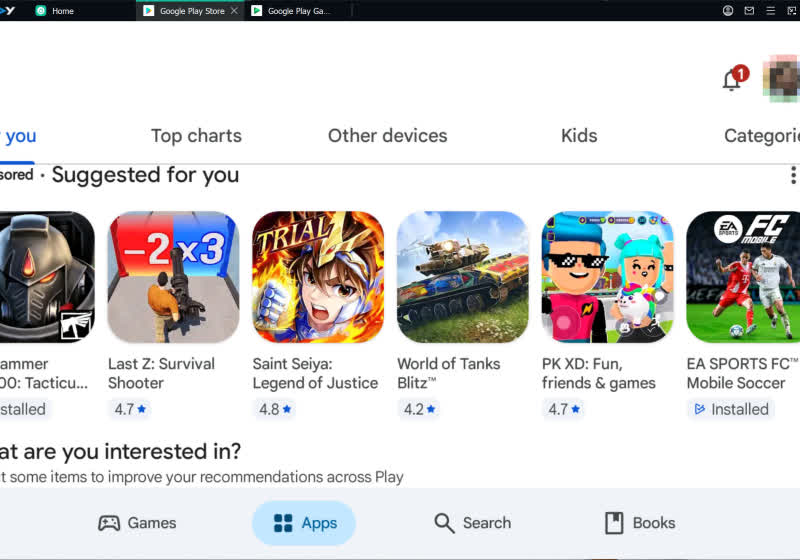If you're choosing a VPN, you may come across two strong options in Proton VPN and IPVanish Both VPNs are secure, have reliable connectivity, and offer access to geo-restricted streaming.
IPVanish will appeal to beginners and gaming enthusiasts the most. It's also cheaper for extensive use, though the pricier one-month subscription (without a money-back guarantee) may be a dealbreaker for some.
Meanwhile, Proton VPN is the more rounded service of the two, stealing the show with top speeds and robust features to safeguard privacy on desktop and mobile devices. It's one of our best VPN contenders, offering unrivaled free tier service without bandwidth restrictions.
So, when narrowing down on which one you should pick, the answer depends on where or what you intend to use the VPN for.
Also: The best VPNs for streaming
Note: IPVanish is owned by Ziff Davis, ZDNET's parent company. For more, see our Editorial Guidelines.
Specifications
Proton VPN | IPVanish | |
Starting price | $4.49/month (for one-year plan) | $3.33/month (for one-year plan |
Servers | 10,000+ | 2,400+ |
Countries | 117 | 108 |
Dedicated servers | Streaming, P2P, Secure Core | Double Hop |
Protocols | OpenVPN, IKEv2/IPSec, WireGuard, Stealth (obfuscation) | OpenVPN, IKEv2/IPSec, WireGuard, SOCKS 5 proxy |
Security | AES 256-bit encryption, Perfect Forward Secrecy, Secure Core, kill switch, leak protection, full disk encrypted servers | AES 256-bit encryption, kill switch, DNS/IPv6 leak protection, all in-house servers |
Ad & malware block | Yes (NetShield) | Yes (Threat Protection) |
No-logs policy | Yes (audited) | Yes (audited) |
Jurisdiction | Switzerland | United States (Five Eyes member) |
Free / trial / money-back guarantee | Free app, 30-day refund policy | 30-day refund policy for 1- and 2-year plans |
Simultaneous connections | 10 | Unlimited |
Compatible devices | Windows, macOS, Linux, iOS, Android, Chromebook, browsers (Chrome and Firefox), Smart TVs (Android TV, Apple TV, Fire TV Stick) | Windows, macOS, Linux, iOS, Android, Chromebook, Smart TVs (Apple TV, Fire TV), routers, Apple Vision Pro |
You should choose Proton VPN if...
1. You want optimal servers for speed and geo-restrictions
I've tested and reviewed both VPN services, and found that Proton VPN has consistently demonstrated better performance over WireGuard and OpenVPN protocols, even earning a spot in our fastest VPNs list alongside renowned providers like NordVPN and ExpressVPN.
Complementary tools like VPN Accelerator help to minimize server congestion, speeding things up while also lowering latency. Although I only noticed a 3% increase in speed with this feature turned on, connections remained stable most of the time. IPVanish was also fast, but speeds dipped significantly on US servers during peak usage hours.
Proton VPN has a network of over 10,000 servers in 117 countries, compared to IPVanish's 2,400+ in 108 countries. The extensive coverage gives Proton VPN a marginal advantage in bypassing geo-restrictions, adding a few more locations to the mix. Both apps provide anti-censorship protocols (Stealth for Proton VPN and Scramble for IPVanish) to get around firewalls that block VPN traffic in places like China or Russia.
Also: Proton VPN review: A very solid free VPN with robust leak protection
2. You want P2P file sharing and torrenting features
Proton VPN offers dedicated peer-to-peer (P2P) servers. These are highly specialized servers tailored for sharing files over the BitTorrent protocol while maintaining better speeds and security. However, you must be on the premium subscription to use them. The app also supports port forwarding and VPN binding with clients like qBittorrent to ensure your P2P traffic always tunnels on the VPN.
While IPVanish is also convenient for torrenting, there aren't any optimized P2P servers in place. It uses SOCKS5 Proxy servers that are equally efficient for file sharing while also hiding your IP address, but these won't encrypt your traffic -- leaving your connection and data in transit exposed to targeted hacks and potential spying.
3. You're primarily concerned with privacy protection
Of the two VPNs, Proton has stronger measures in place to protect user privacy. Both services provide robust encryption, IP leak protection, and independently audited no-logs policies. However, Proton VPN's jurisdiction in Switzerland is privacy-friendly, with better consumer data protection laws. IPVanish is headquartered in the US, where data retention laws are lax and authorities can demand users' information from the provider (the US also belongs to the 14 Eyes Alliance, in which member countries can share surveillance data on citizens).
Connecting to signature Secure Core servers will reroute your traffic through privacy-friendly locations (Iceland, Sweden, or Switzerland) first before your chosen location. Such a unique tunneling system prevents any attempts by third parties to track your IP address or launch man-in-the-middle (MITM) attacks. IPVanish has a similar feature called Double Hop VPN, allowing you to choose entry and exit servers for your rerouted connections.
4. You want a "free forever" VPN with no strings attached
Proton VPN has a free app with solid security and unrestricted bandwidth. You may be aware that free VPNs have limitations and can even pose safety risks. Proton VPN, however, doesn't cut corners with its free offer. You get the same level of protection as paying customers, including AES 256-bit encryption, kill switch functionality, and no data logs.
The free service has its shortcomings, such as access to servers in only five countries and only one user per account. If you want to get a feel of the premium features, Proton VPN has a 30-day money-back guarantee on all its plans. IPVanish, on the other hand, doesn't give refunds if you buy the one-month service.
You should choose IPVanish if...
1. You want a multi-user VPN for all your devices
IPVanish's unlimited connection allowance ensures you can secure all your personal and home devices simultaneously without needing to log out and create free slots. It's a worthwhile investment in the long run, considering two years is just $52.56 ($2.19/month) at the time of this writing, which is more than double what you'll pay on Proton VPN. Not only does IPVanish provide limitless coverage, it also offers native apps for seamless integration on iOS, Android, Windows, Linux, Apple TV, Fire TV, and wearable tech like Apple Vision Pro.
Also: IPVanish VPN review: Fast connections and solid protection
2. You prefer a beginner-friendly app
These two VPN apps are similar, and have both been criticized for having cluttered user interfaces. However, IPVanish's app is sleeker and more intuitive, appealing most to beginners looking for a stress-free app to tap and connect on the go. That's not to underscore the broad spectrum of built-in tools for power users -- it's just that the arrangement makes navigation a lot easier than on Proton VPN.
Also, IPVanish has a better 24/7 customer support system via chat, phone, and email. Proton VPN staff are hard to reach, limiting contact only to certain hours of the day and mostly redirecting users to fill out a form.
3. You need a large pool of shared IP addresses
IPVanish has a pool of over 40,000 IP addresses on rotation across its network. This helps to ease IP crowding and problems with blocklisted IPs. It is common for shared IP addresses from VPN providers to be flagged and denied access to IP-sensitive sites (for one reason or another) or required to pass security verifications. IPVanish frequently replaces outdated IPs from its vast IP pool, ensuring that every IP on rotation provides value to the user. High-frequency IP rotation also makes it hard for websites to fingerprint your online browsing activities.
4. You want a VPN to use for gaming
IPVanish offers better gaming support. While slightly slower on connection speed, the ping rate was comparatively lower on nearby servers for responsive gaming in my tests. You can also tailor the VPN for optimal gaming performance, with AES 128-bit encryption, WireGuard, and OpenVPN (UDP) settings all supported. Also, picking low-latency servers for gaming is easier with IPVanish's sorting feature.
The final verdict
Between Proton VPN and IPVanish, Proton has the competitive edge. The app includes features to boost performance whilst maintaining military-grade security for your connections, justifying the higher price for a premium account. IPVanish also enjoys a strong reputation industrywide, delivering excellent service like Proton VPN at a fraction of the cost. Whichever VPN you choose for everyday use, you can't really go wrong.
Is Proton VPN better than IPVanish?
Based on our tests, we've noted that Proton VPN can provide a slight advantage over IPVanish. It's a solid choice, especially for privacy, and if you want more stable connections. In our testing, performance remained consistent even at peak connectivity hours, supported by a vast server network to minimize congestion. IPVanish, while also reliable, secure, and fast, can experience middling speeds at times, and the US headquarters can be a factor on why you might want to choose Proton instead.
Which is better for iPhone/iPad between Proton VPN and IPVanish?
Both apps are reliable for iOS. Proton VPN has somewhat more convenient tools on iPhone, including specialized servers for streaming and enhanced privacy. That means you can stream content on your favorite platforms and even share files securely from your iOS and iPadOS devices. IPVanish gets credit too for its user-friendly iOS apps and even supports IKEv2/IPSec setup for quicker speeds on mobile devices. Both VPNs offer advanced features, including ad and tracker blockers to minimize annoyances while browsing.
Which is more affordable between IPVanish and Proton VPN?
IPVanish has affordable deals on extended subscriptions. The two-year introductory offer starts from $52.56 ($2.19/month) and one year from $39.99 (3.33/month). Proton VPN is the cheaper option for monthly subscribers at $9.99; three bucks less than IPVanish's $12.99 per month. However, Proton VPN gets more expensive on the one and two-year plans, which cost $59.88 ($4.49/month) and $107.06 ($4.99/month) respectively.

 6 months ago
66
6 months ago
66








 English (US) ·
English (US) ·